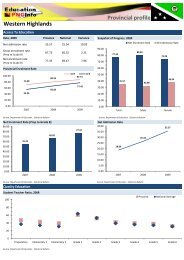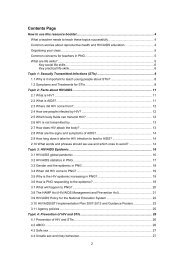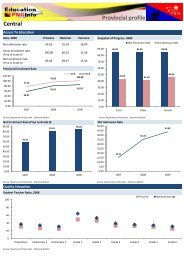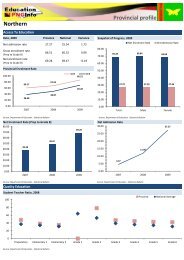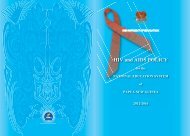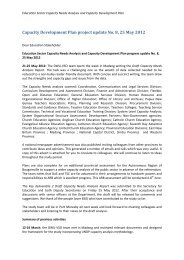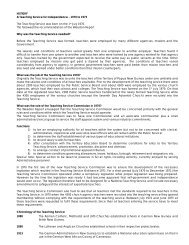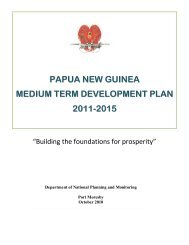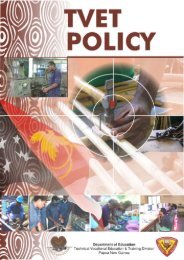Health Education to Prevent HIV/AIDS & STIs - Department of ...
Health Education to Prevent HIV/AIDS & STIs - Department of ...
Health Education to Prevent HIV/AIDS & STIs - Department of ...
Create successful ePaper yourself
Turn your PDF publications into a flip-book with our unique Google optimized e-Paper software.
<strong>Department</strong> <strong>of</strong> <strong>Education</strong> TVET Division<br />
<strong>HIV</strong>/<strong>AIDS</strong> & STI Teacher Guide<br />
• Constant diarrhoea<br />
• Oral thrush<br />
• TB<br />
• Constant fever<br />
• Pneumonia<br />
• Fatigue<br />
c. Conclusion: (15 mins)<br />
Put these questions on the board and ask students <strong>to</strong> discuss them in groups <strong>of</strong> 4.<br />
What are the common opportunistic infections that attack people with <strong>AIDS</strong><br />
Hear some answers and then say, “Common opportunistic infections include<br />
diarrhoea, oral thrush, TB, pneumonia and malaria”<br />
Why does a patient need an <strong>HIV</strong> blood test <strong>to</strong> confirm they have <strong>AIDS</strong><br />
Say, “Many illnesses have symp<strong>to</strong>ms like <strong>AIDS</strong> so we must be careful saying<br />
someone has <strong>AIDS</strong> if they are sick. The only way <strong>to</strong> know would be <strong>to</strong> have an <strong>HIV</strong><br />
blood test. Don’t say someone has <strong>AIDS</strong> or <strong>HIV</strong> if you don’t know.”<br />
37





